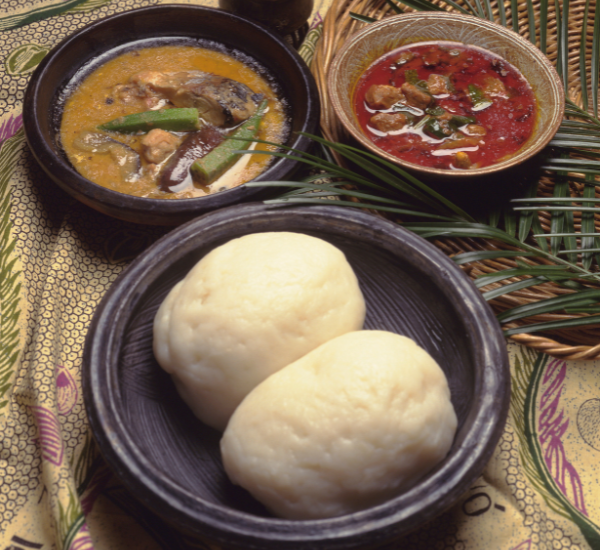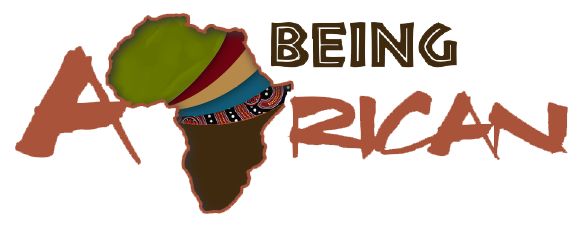
Dining & Hosting in Chewa Culture
Chewa Dining and Hosting
Malawi is widely regarded as the “Warm Heart of Africa,” where locals convey friendliness. This friendliness is a sign of hospitality by the Chewa towards guests in their communities. It is common among the Chewa for strangers to wave and greet visitors as if they know them, and it is easy to make them smile with a “moni” (greeting). When passing a group of people or, older people saying ‘Wawa” (hello) is essential as it signifies respect.
The Chewa people generally give and receive items with both hands. Eye contact is essential, but direct stares are limited, especially toward elders or persons of authority. Visiting is a typical activity because of strong family and community ties. Unannounced visits can happen at any time, but they’re most common on Sundays. Rather than knocking at a door, Malawians call out Odi, odi! (Knock, knock!) until someone welcomes them in with ‘eya’ or Odini! (Come in!). A household that receives a lot of visitors is highly regarded.
The Chichewa proverb “Alendo ndi mame” (Visitors are like dew) suggests that a visitor’s presence is temporary and valuable. Guests are immediately served tea or water as well as refreshments by hosts. In the Chewa culture, asking if a visitor wants something is considered impolite. Visitors are customarily expected to bring a small present of money, tea, or sugar, especially if they have been invited to welcome a new baby or visit after a funeral.
The Chewa usually begin their day with corn porridge, cornbread, sweet potatoes, or a piece of bread and tea. Following the April harvest, there is usually a greater abundance of food. Women usually cook over an open fire with three stones supporting a pot in small mud-brick kitchens or over an open fire. Until the food is ready for consumption, it is kept covered. Among the Chewa families, women and children eat apart from men, who are served first. It is disrespectful to smell food or make a comment about a meal’s aroma. When a person is done eating, a small amount of food left on the plate shows the cook that the person has had enough to eat.
The Chewa typically do not feel they have eaten unless they have had nsima (starchy porridge made of cornflour and water). The adage ‘Mwamuna Mpamimba” (Eating makes men stronger) is always said when the Chewa wants to convince the woman to prepare food. Nsima is balled in the right hand, dipped in “ndiwo” (relish served with nsima), and eaten. “Ndiwo” can be cooked with fish, pork, beans, greens, or other ingredients, depending on what is available. Rice is a less filling and more expensive alternative to nsima. Papaya, mangoes, bananas, tangerines, tomatoes, sweet potatoes, and avocados are among the fruits and vegetables grown locally. The Chewa of all ages like sugarcane for a snack.
Among the Chewa, there is a famous proverb, “Mlendo amabwera nkalumo kakuthwa,” meaning a visitor comes with good things. The household which regularly receives visitors is praised and regarded as lucky in the community. When visitors arrive, they prepare delicious food; typically a local chicken served with Nsimaand some vegetables. Visitors are treated with all dignity. For example, when the food is served, the visitors usually wash their hands first, then the hosting members follow. Most Chewa people believe in God, so they pray before eating the food.
It is also a norm among the Chewa that women carry maize flour in a basket when visiting relatives. The flour is meant to cushion the hosting family in situations where they do not have food to prepare for the visitors. Despite being allowed to interact with the visitors, during mealtime, children are fed separately. When you visit among the Chewa, the neighbors and other community members also pass by to greet you. Hence a visitor is welcomed by the whole community. The neighbors also prepare food for the visitor. Among the Chewa, preparing food for the visitors is viewed as a significant way of showing that the visitor has been welcomed wholeheartedly. Failure by the hosting family to provide food to the visitor reflects that they have not been welcomed, and the hosts do not care about the visitor.
Nsima Recipe
Ingredients
- Maize flour
- Cold water
Equipment
- One big pot
- Wooden spoon
- Cup
- Whisk (optional)
Cooking Instructions
- In a big pot, measure out 2.5 cups of cold water for every cup of maize flour.
- One method: Bring
- water to boil. When the water has boiled, gradually whisk in about half of the maize flour
- using a firm wooden spoon.
- Stir the mixture. It will soon begin to boil.
- Please note some people prefer to make a paste with maize flour and cold water to a dropping consistency, then add that to boiling water instead of the method above.
- Allow for a 10-minute simmer (reduce the heat to medium after 3 minutes), then cook, stirring from time to time. It resembles porridge at this stage.
- Continue to stir over the heat (medium to low), add the remaining maize flour a bit at a time. The nsima should thicken and smoothen out.
- After adding the remaining flour, keep stirring it over low heat for five minutes, and it’s done!
- Allow the nsima to cool for a few minutes; as it cools, it will solidify. Then serve with your favorite “ndiwo” (side dish).
